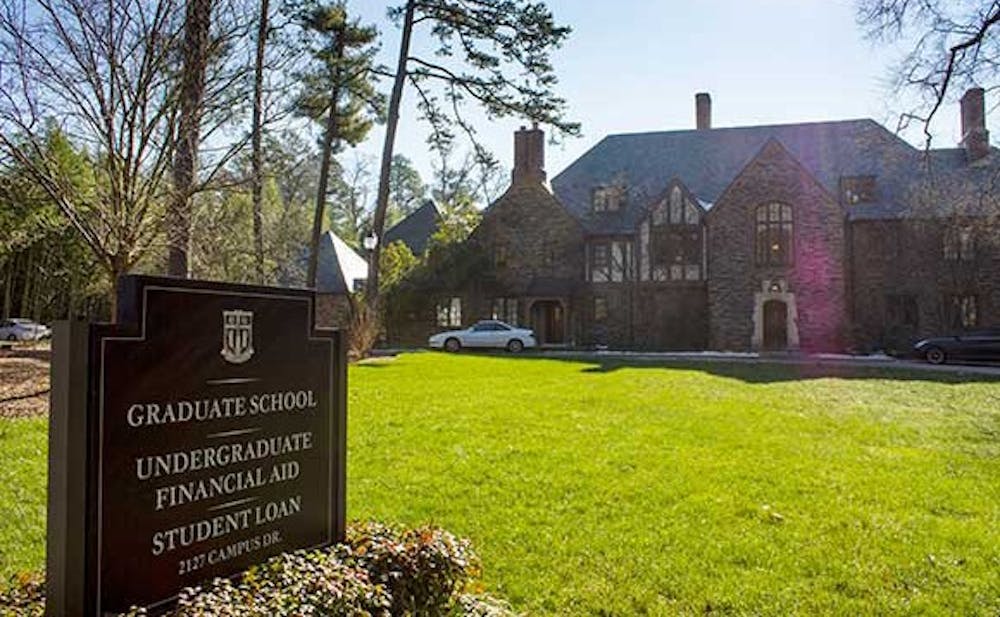Last month, some families received a letter explaining that Duke University will no longer pay for their student’s health insurance.
When junior Daria Patterson-Smith found out about the policy change, she realized that her plans for senior year may be derailed. Patterson’s family has health insurance through Kaiser Permanente, but their plan is not accepted at Duke.
For the past three years, she has been covered by Duke’s student insurance plan, which was part of her financial aid package. But next year, she could have to pay for the student insurance plan out-of-pocket, almost doubling her costs for school.
Patterson-Smith's expected family contribution is about $3,000. She is a resident assistant on East Campus, and she works at a lab for 10 hours a week to pay for tuition. She also has been saving up so that she could live off-campus during her senior year. Now, she may not be able to afford it.
Duke requires undergraduate students to either provide proof that they are covered by an approved health insurance plan or purchase its student insurance plan. The student insurance plan costs $3,535 each year and must be paid in full before the fall semester starts, according to the Student Affairs website.
In past years, any students receiving need-based financial aid who did not report having approved health insurance coverage were added to the student insurance plan for free.
However, starting in the 2019-2020 academic year, Duke will only cover that cost for students receiving need-based financial aid who have a calculated parent contribution of $0.
Alison Rabil, assistant vice provost and director of the Karsh Office of Undergraduate Financial Support, said that the financial aid office hopes most of the affected students can be added back onto their families’ health insurance plans to avoid having to pay for the student insurance plan.
She said that the office sent letters home as early as possible to maximize families’ opportunity to figure out the new policy.
“We understand that it’s going to be an additional cost to some families," Rabil said. "For some families, it will be the additional cost of putting them back on your insurance, and for some it will be the additional cost of the Duke insurance. Hopefully, the cost will not be something that the families can’t manage reasonably."
If the cost is prohibitive, then families will have the opportunity to appeal. Rabil added that the financial aid office is still figuring out how the appeals process will work.
In the meantime, families can reach out to their student’s financial aid adviser with questions or concerns.
“This is an effort to steward the university’s funds in the best possible way," Rabil said. "I can understand the concern but we are hoping that most students will be in a position to re-establish their coverage at home and that the cost will be manageable."
Michael Schoenfeld, vice president of public affairs and governmental relations wrote in an email to The Chronicle that with this move, Duke will join a number of universities with a similar policy.
“This will make Duke’s practices consistent with our peer universities, and will ensure that our financial aid funds are used in the most efficient and effective way,” he wrote.
Caleb Kornfein, a first-year who is currently covered by the student insurance plan at no extra charge, said that his family is considering switching health insurance providers to avoid having to pay for Duke’s student insurance plan. His family also is covered by Kaiser Permanente, which isn’t accepted at Duke.
But switching plans would be difficult because his family would have to reconfigure his sister’s care. She has a rare medical condition that requires her to see more than eight specialists.
He added that he’s already feeling more stressed about money.
“I’ve been thinking more about money than I normally would in the last week, like what extra work study could I do? Or, I’m not going to go out tonight,” Kornfein said.
Kornfein already has a job working at the front desk at Lilly Library for at least seven hours a week.
Get The Chronicle straight to your inbox
Sign up for our weekly newsletter. Cancel at any time.
“I feel like it’s just another way to save a few thousand dollars, but it puts the burden disproportionately on families that aren’t the most financially stable out of all of the families at Duke,” he said.
Patterson-Smith echoed that it seems strange that Duke would choose to change a policy that was helping low-income students afford health care.
Since she became an RA, Patterson-Smith has been less stressed about money. She has joined Outing Club and an selective living group. She even bought a moped so that she could volunteer off-campus at an animal shelter. But if she had been charged for health insurance, she thinks she wouldn’t have had the same experience at Duke.
“I would have done so much less at this school," Patterson-Smith said. "Outing Club, Illyria—I probably wouldn’t have joined those because it costs money. Less groceries, too, since I cook my meals so I can save food points. Just kind of less of everything.”
Correction: This article originally misstated the expected financial contribution of one of the families and that expected family contribution, instead of specifically parent contribution, would need to be above $0 for the policy change to have an effect. The Chronicle regrets the error.

